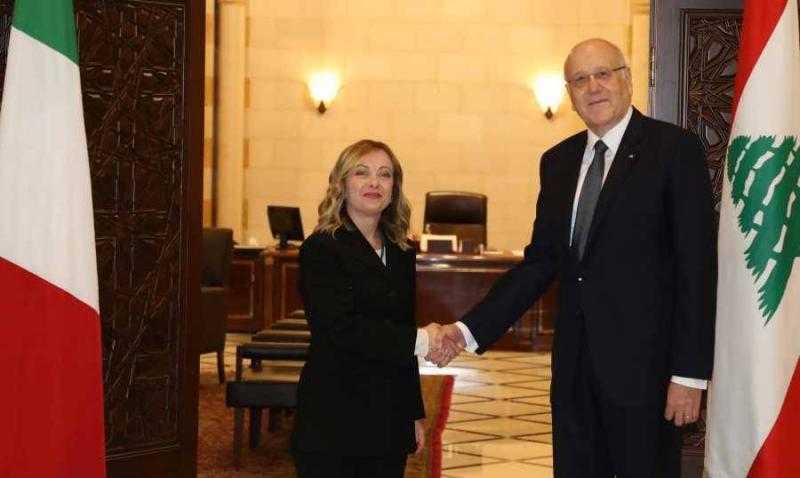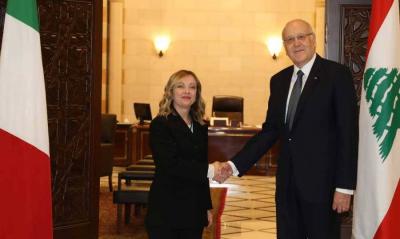It was notable during Italian Prime Minister Giorgia Meloni's visit that her meetings were limited to a session with Lebanese Prime Minister Najib Mikati, without holding discussions with other official, political, or religious Lebanese leaders, which is customary for high-level Western or Arab officials visiting Lebanon. According to a well-informed Lebanese source, the messages from the visit were as follows:
First: She informed Prime Minister Mikati that the priority is the safety of the UNIFIL troops operating in southern Lebanon, especially the Italian battalion, which is the second-largest participating battalion. Therefore, she spent most of her visit in the southern town of Shmell, where her country’s battalion is based, closely monitoring all the field developments, the looming dangers, and the precautionary and protective measures.
Second: She emphasized that Lebanon must commit immediately and unconditionally to implementing UN resolution 1701, and that Lebanon has the responsibility to initiate a ceasefire along the southern front, without waiting for the developments on the Gaza front. Thus, her stance can be interpreted as an additional international warning to Lebanon, placing the responsibility to prevent the escalation of hostilities squarely on its shoulders.
Third: The issue of Syrian displacement and illegal immigration occupied a significant part of the discussions, as the immigration file poses a constant headache for EU countries. Hence, she stressed the importance of maintaining stability in Lebanon and expediting the election of a president to ensure the functioning of constitutional institutions, while expressing readiness to assist Lebanon in alleviating the burdens of displacement, prioritizing support for Lebanon at the Brussels conference on displacement scheduled for May 27.
Fourth: She reiterated the commitment to continue supporting the Lebanese army to enable it to fulfill its full duties across all Lebanese territory. Italy has been proactive in hosting efforts to aid and support the army through various conferences and meetings, and the recent meeting involving several European military leaders with Lebanese Army Commander General Joseph Aoun will not be the last, with a mechanism established for follow-up on agreed-upon actions.
In this context, messages conveyed by U.S. Assistant Secretary of State Ethan Goldrich and Ambassador Lisa Johnson during their meetings with Lebanese officials reflected concerns over the potential for dramatic escalation on the southern front. Although he indicated that the U.S. is exerting pressure on Israel to avoid expanding the conflict with Lebanon, Goldrich did not provide assurances against the possibility of the situation escalating into a wider war; rather, it was understood from his remarks that all possibilities remain open. This aligns with Prime Minister Meloni’s perspective as well, which placed the onus on Lebanon to initiate measures to cease hostilities that began on October 8, avoiding linking the restoration of calm to a ceasefire in Gaza, as that would not serve Lebanon’s interests at all.




